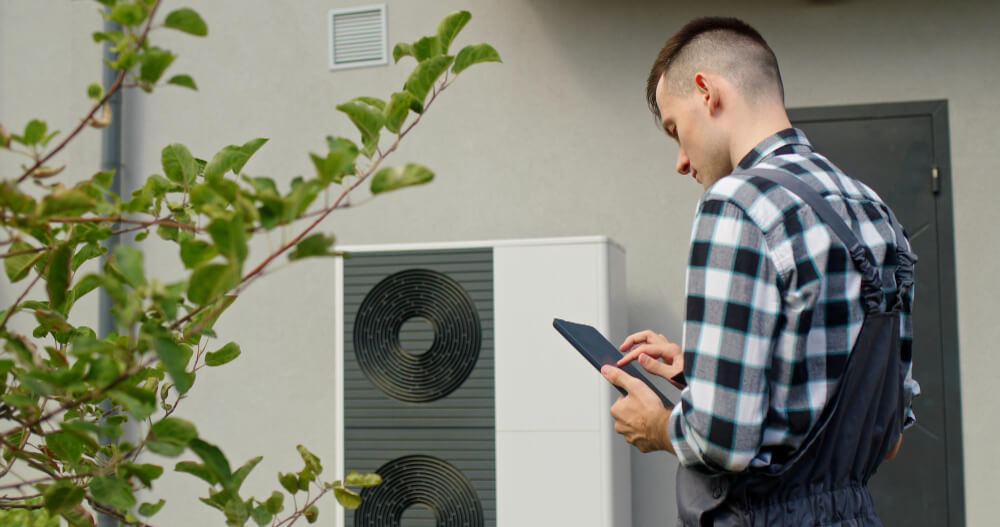If your air conditioner is more than 10 years old, you may have noticed it struggling to keep up with the Tennessee heat—or worse, you’re seeing your energy bills rise month after month. One of the best ways to improve your home’s comfort, lower your cooling costs, and reduce environmental impact is by upgrading to a high-SEER AC unit.
But what does SEER mean, and why should it matter to you?
Let’s explore the benefits of upgrading to a high-SEER AC system and how it can be a smart long-term investment for your home, your wallet, and the planet.
What Is SEER?
SEER stands for Seasonal Energy Efficiency Ratio. It’s the standard measurement of an air conditioner’s efficiency across an entire cooling season.
The higher the SEER rating, the more energy-efficient the unit is. For example:
Older units may have SEER ratings of 8 to 10
Newer models typically range from 14 to 26
ENERGY STAR® certified systems must have SEER 15 or higher (as of 2023, depending on the region)
In short: Higher SEER = Lower Energy Consumption
1. Lower Monthly Energy Bills
The biggest and most immediate benefit of a high-SEER AC unit is reduced electricity usage. Since these systems are designed to cool your home more efficiently, they consume less power for the same amount of cooling.
Example:
Let’s say your current AC unit is SEER 10, and you upgrade to a SEER 18 system. You could save up to 44% on cooling costs, depending on usage, insulation, and climate.
For a typical household, this could translate to hundreds of dollars in annual savings, especially during Tennessee’s long, hot summers.
2. Improved Indoor Comfort
High-SEER systems often include variable-speed motors and two-stage compressors that adjust output based on current cooling demand. This allows for:
More consistent temperatures
Better humidity control
Fewer temperature swings and “hot spots”
Quieter operation
Instead of constantly cycling on and off like older systems, high-SEER units run longer, more efficient cycles that keep your home comfortable at a steady pace.
3. Longer System Lifespan
Because high-efficiency units are designed to run at variable speeds and lower loads, they experience less wear and tear compared to traditional single-speed systems.
That means:
Fewer breakdowns
Reduced repair costs
Longer overall service life
With proper maintenance, a high-SEER AC system can last 15–20 years or more, maximizing your return on investment.
4. Increased Home Value
Upgrading to a high-efficiency AC system is a strong selling point for potential buyers—especially as more homeowners prioritize energy efficiency and indoor air quality.
Benefits for resale:
Lower utility bills appeal to cost-conscious buyers
Updated HVAC system reduces worries about repair/replacement
Improves your home’s energy score and appraisal value
Plus, if you’re listing your home in the summer, a modern, high-SEER system shows that your home is move-in ready and comfortable.
5. Eco-Friendly Cooling
Using less energy doesn’t just save you money—it also helps reduce your carbon footprint. A high-SEER AC system requires less electricity from the grid, which often comes from fossil fuels.
If you’re trying to reduce your environmental impact or go “greener” at home, upgrading your AC is one of the most impactful moves you can make.
Many new systems also use eco-friendly refrigerants like R-410A, which do not deplete the ozone layer—unlike older systems that rely on R-22 (Freon), which is now phased out.
6. Potential Rebates and Incentives
Because high-SEER systems promote energy conservation, they may qualify for federal tax credits, local utility rebates, or manufacturer incentives.
For example:
The Inflation Reduction Act of 2022 offers tax credits up to $2,000 for qualifying HVAC systems.
Local energy providers may offer cash-back rebates when you upgrade to a high-SEER model.
These programs can significantly reduce the upfront cost, making your investment even more affordable.
7. Quiet and Peaceful Operation
Tired of hearing your AC kick on and off all day? High-SEER systems typically operate much quieter thanks to:
Variable-speed compressors
Improved fan technology
Better insulation and design
This makes a big difference if your AC unit is near bedrooms, living areas, or outdoor entertainment spaces.
8. Better Humidity Control
One often-overlooked benefit of high-SEER systems is their ability to manage indoor humidity more effectively.
Older systems cool the air quickly but shut off before removing much humidity. High-efficiency units, however, run longer, gentler cooling cycles, allowing them to remove more moisture and improve indoor air comfort.
Lower humidity levels also reduce the risk of:
Mold growth
Dust mite reproduction
Musty odors
This is especially important in humid climates like Nashville, where muggy air can be just as uncomfortable as the heat itself.
Is a High-SEER System Right for You?
It depends on several factors, such as:
The age and condition of your current system
Your energy usage habits
The size and layout of your home
How long you plan to stay in your home
If your current AC system is more than 10 years old, needs frequent repairs, or is costing you more every summer—it’s time to explore your upgrade options.
Let South Nashville Heating & Cooling Help You Upgrade
At South Nashville Heating & Cooling, we specialize in helping homeowners upgrade to energy-efficient, high-SEER air conditioning systems that save money and deliver long-term comfort.
When you choose us, you get:
Expert consultation and sizing based on your home’s needs
Access to top-rated, ENERGY STAR® certified brands
Professional installation and system testing
Help with rebates, financing, and tax credit documentation
Ongoing maintenance and support from a trusted local team
Upgrade Smart. Cool Smarter.
A high-SEER AC unit isn’t just a cooling system—it’s an investment in comfort, efficiency, and peace of mind. If you’re tired of rising energy bills and inconsistent cooling, now is the perfect time to upgrade.
👉 Fill out the form below or contact South Nashville Heating & Cooling to schedule your free consultation. We’ll help you choose the perfect system for your home—and your budget.









